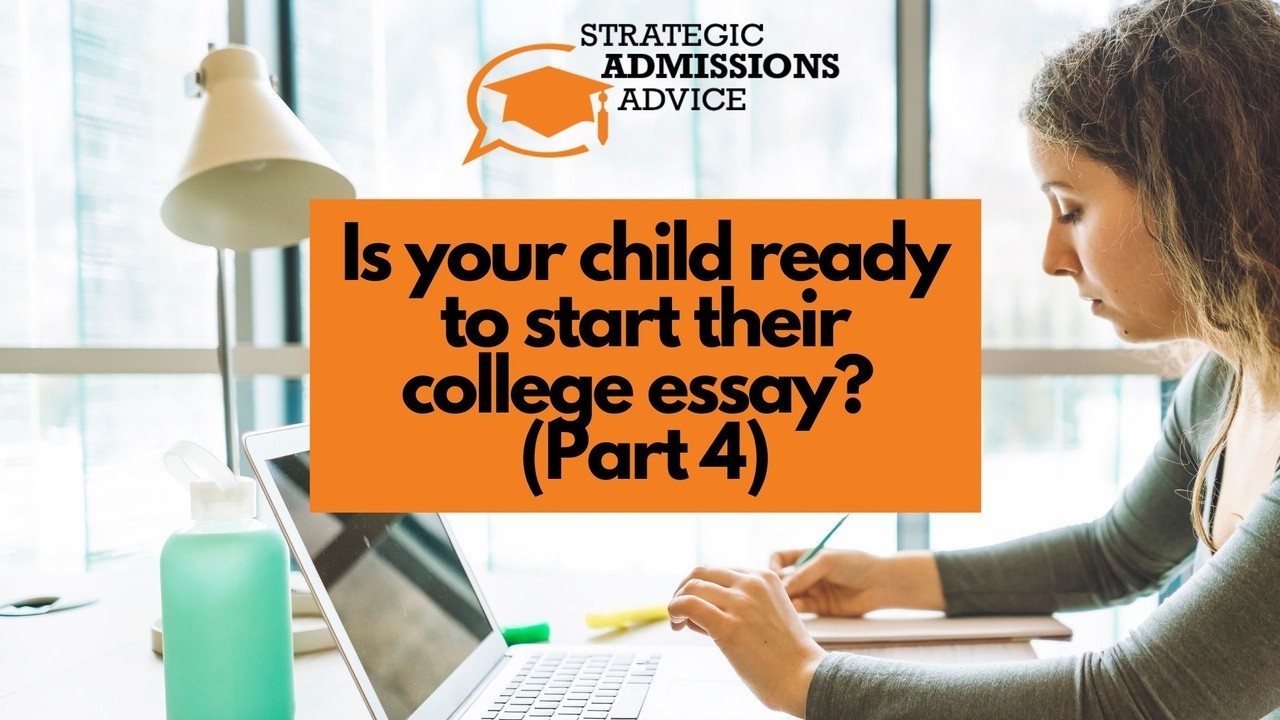How Your Teen Can Shine in a College Interview

The key to college interviews is preparation. There are two types generally -- an on-campus interview or one with an alumnus in your local area. It is always important that your child share their best self, ask questions and share their thoughts and concerns about the step in their educational journey.
College interviews can be very nerve-wracking. Many students assume that a decision will be made based upon what happens in this one-on-one session. In truth, unless a student totally blows it -- like slapping the interviewer or using profane language in describing a school they love -- interviews are much more information-gathering opportunities. Yes, colleges may be interviewing, but are also getting ...
3 Tips to Get Your Teen Going with Their College Applications

If your kid is self-motivated and reading all the instructions on how to complete their applications and essays, consider yourself blessed. It takes mental strength and stamina to decipher all that needs to be done for the college process and execute it at a high level. For the rest of us, we need help. Tips to figure out how best to help our kids to help themselves.
Here are three to start.
#1: Carve out time for them
Discuss exactly when they’re going to work on their applications and essays and make it non-negotiable. I think an hour or two three days a week during the month of August is solid.
#2: Help them with their Common Application
Actually sit down and review the parts of the Com...
Why the College Essay is So Important

Do you understand the power of literally grabbing the attention of an admissions reader? On average, an admissions officer may spend 4-7 minutes reading your child’s application.
Yikes!
Hence why the personal essay as well as the supplemental essays are so critical.
Any good parent lives to help their child to succeed, and in this college application season, you may need to help your child to brainstorm a topic. Their creative juices need to start churning and you may be able to help them. Trust me, opening lines matter.
Here are some of my favorite opening lines from our kids in the past:
“Getting kicked in the mouth is not fun. Especially when receiving the kick from a Brazilian 5th-degree blac...
Is your child ready to start their college essay? (Part 4)

PARENTS!!!! READ THIS WITH YOUR RISING SENIOR!!!!
Use the rules below and you’re on your way!!!!
Develop the essay into three parts:
Introduction: One paragraph that introduces your essay. Start with a catchy first sentence. If it grabs the reader’s attention, he or she will be encouraged to read on. You might use a meaningful quote or start with a rhetorical question that fits your situation. You might open with a detailed description of the setting of an important experience you've had so that readers feel they were really there. You might start with a mystery that will be revealed later in the essay or double-entendre. If you are experiencing writer’s block, skip this first sentence, and wo...
Is your child ready to start their college essay? (Part 3)

PARENTS!!!! READ THIS WITH YOUR RISING SENIOR!!!!
Use the rules below and you’re on your way!!!!
-
Start Early
Starting early buys you the luxury of revising and rewriting the essay. You can write it, put it away for a few days, then take a fresh look at it later. Walking away and then coming back brings a fresh perspective to the work -- without the pressure and stress that comes with a time crunch.
-
Brainstorm.
Starting the essay can be the hardest part. Brainstorming about your personality traits and defining your strengths is a good place to begin. Your goal is to reflect about who you are as a person. Don’t think of it as bragging. Think about it as a self-commercial. No o...
Is your child ready to start their college essay? (Part 2)

PARENTS!!!! READ THIS WITH YOUR RISING SENIOR!!!!
Use the rules below and you’re on your way!!!!
Be specific. Keep your focus narrow and personal by figuring out how the question relates to your personal qualities and then taking a specific angle. Make sure everything you write supports that viewpoint. But don’t adopt a preachy tone. College admission officers don’t want to be lectured on rainforest destruction. Instead, tell them how you became interested in environmentalism.
Use the active voice. This is a challenge for all writers. As a matter of style, writing in an active voice energizes an essay. Avoid the passive voice. Word processing programs often provide assistance with converting passive...
3 Keys to Writing an Awesome College Essay (Part 1)

I have been teaching essay writing for twenty years and before I get too deep, I want you and your child to know the basics first. The personal statement should reveal something important about them that their grades and test scores cannot. Try to help your child to answer these two essential questions:
#1: Who are you?
#2: What’s important to you?
This is not easy and it’s not necessarily fun. Teenagers struggle with identity and sharing parts of their lives. They need help.
PLEASE share the blog below with our child. It’s written to them.
STEP 1: Be yourself. You are 1 of 1. Write in your own voice. Write what you feel, not what you think the admissions committee wants to hear. Parents, you...
Why Teacher Recommendations Matter Now More Than Ever

One of the most important parts of the college application, especially now that standardized test scores are not always required, is the recommendations that teachers write for their applicants. There are several different reasons why these recommendations are vital and can set an applicant apart from the pack.
Here are some key things you and your child need to know about teacher recommendations.
Recommendations should come from core subjects: English, math, science, history, and foreign language. Why? Because these are classes that are usually part of a required curriculum in college.
11th Grade teachers tend to be the most popular teachers to ask for letters of recommendation, but that might not ...
Your High School Guidance Counselor Needs To Do More (5 Questions to Ask)

Whatever you call the school counselor at your child’s high school -- guidance counselor, college counselor, etc -- please know that they are an integral part of the college application process. A few elements of their job are:
-
to offer college advice to you and your child
-
weigh in on the selection of courses for each year
-
write a school counselor recommendation on behalf of your child
-
send the transcript
-
communicate with colleges about your child’s application and interest
Some school counselors do this better than others, and usually, it depends on their caseload of students.
As a parent, you should attend any college preparation presentations that your school offers.
...Are resumes necessary for high school students?

The short answer is “yes.” Some schools always ask for it and expect it (Cornell and Washington University in St. Louis). Every year, colleges tell me that they want to see that kids are engaged. Studies have shown that children who take part in after-school programs can enjoy the benefit of an academic boost. In fact, such studies showed that students who took part in regular after-school programs performed better academically than their peers who did not attend after-school activities.
Time management is key
Students who take part in extracurricular activities are taught how to effectively manage their time. This is an excellent way to teach time management and help students learn how to keep their p...


